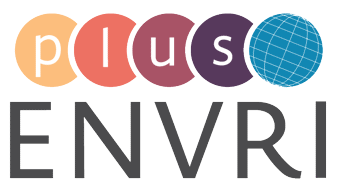T4 – Societal Relevance & Understanding
 Theme Leader: Mairi Best (INGV)
Theme Leader: Mairi Best (INGV)
As societies constantly have to adapt to environmental challenges, data from environmental Research Infrastructures play an important role in societal decision processes. This requires a specific culture of translating the data into an interdisciplinary understanding of human-environmental systems (HES) and is called ‘environmental literacy’. Theme 4 provides tasks to further develop environmental literacy and train environmental Research Infrastructures to participate in trans-disciplinary analyses and decision-making processes. It will help to develop a common voice for environmental Reasearch Infrastructures, and address common ethical problems such as data integrity and responsibility for communication of environmental knowledge. Finally, it will value and strengthen participation of citizens in environmental science. Participative science is a win-win activity between environmental Research Infrastructures and the public. It raises awareness of citizens and also provides valuable data in monitoring change in the natural world. Thus, it is a key activity to increase environmental literacy. Furthermore, citizens’ connection with the scientific community not only ensures trust in the data provided by environmental Research Infrastructures but by contributing to that data, citizens are empowered by becoming involved in the scientific process. This Theme is strongly connected to all previous Themes.
WP12 – A Framework for Environmental Literacy
The core issue of this WP is to address and optimize the information flow between the environmental system and the human systems when using data and information collected and produced by Research Infrastructures. Clarifying these interactions between the two systems would help to better assess the capacity of environmental Research Infrastructure data to be used to meet the grand challenges. Based on two test cases a generalization will be elaborated. This WP aims to provide operative indications that can feed into best practices of environmental Research Infrastructure development to assist programme managers and policy makers to make informed decisions on the further development of Research Infrastructures.
Contact WP12 leader Florian Haslinger for more details
WP13 – Developing an Ethical Framework for Research Infrastructures
The goal of this WP is to increase the awareness on the importance of ethical aspects in Earth sciences as a whole, by both the scientists and the public, by:
1) Establishing shared ethical reference framework adopted byResearch Infrastructures governing bodies, including management guidelines for Ethical Boards in Research Infrastructures,
2) Increasing the awareness of Research Infrastructures management and operational levels and the individual involved scientists on their social role in conducting research activities and research work environment,
3) Assessing the ethical and social aspects related to project results achieved and deliverables released.
Contact WP13 leader Silvia Peppoloni for more details
WP14 – Citizen Observatories and Participative Science
A necessary component of environmental Research Infrastructures is and will increasingly become participative or “citizen” science. This is for two key reasons: 1) it raises societal awareness and engagement about environmental change and 2) provides data that is otherwise logistically inaccessible for monitoring change on our planet. This work package develops and summarizes resources for environmental Research Infrastructures to engage with the public in citizen science, an area providing innovative solutions for data or sample collection, management, processing, curation, annotation, and deposition. In particular it will move beyond a review of status quo to targeted test cases in leading areas of citizen science to develop:
1) resources and best practices for public contributions to the annotation of imagery,
2) a framework for distributed networks of observers and sensors who collect data and can perform response actions.
In all cases, engaging, training, and maintaining active citizen scientists is required; as are data systems for the acquisition, assessment, access, and analysis of distributed data sources.
Contact WP14 leader Mairi Best for more details

